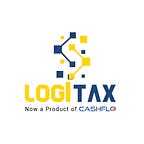Supply & Types of Supply under GST
When GST (Goods and Services Tax) was introduced in 2017, it brought about a significant change in the way taxes were applied to various goods and services in India.
Many existing taxes like excise duty, state VAT, and service tax were absorbed into the GST regime. One of the fundamental concepts of GST is “supply.”
In simple terms, GST is applied when there is a supply of goods or services. Let’s delve into the definition of supply and understand it more clearly.
Definition of Supply:
According to Section 7(1) of the CGST Act, 2017, the term “Supply” is defined as follows:
- For the purposes of this Act, the expression ‘supply’ includes-
a) All forms of supply of goods or services or both, such as sale, transfer, barter, exchange, license, rental, lease, or disposal made or agreed to be made for a consideration by a person in the course or furtherance of business.
b) The activities or transactions, by a person other than an individual, to its members or constituents or vice-versa, for cash, deferred payment, or other valuable consideration.
c) Import of services for consideration, whether or not in the course or furtherance of business; and
d) The activities specified in Schedule I, made or agreed to be made without consideration.
Key points of the definition:
- Supply includes all types of transactions: This includes not just the sale of goods but also exchange, barter, and various other forms of transactions.
- Consideration is essential for a transaction to be a supply: In most cases, a transaction must involve some form of consideration (money, goods, or services exchanged) to be considered a supply. However, there are exceptions as outlined in Schedule I.
- Supply occurs in the course of business: Supply is typically associated with activities carried out in the course or furtherance of business. Transactions unrelated to business are generally not considered supply.
- Import of services is considered a supply: Importing services from another country is considered a supply, irrespective of whether it’s for business purposes or not. However, consideration is still a requirement.
- Schedule I specifies activities as supply even without consideration: Some activities, like the permanent disposal of a business or certain transactions between related parties, are considered supply even if there is no direct consideration involved.
Examples:
Let’s illustrate this with a few examples:
1. Mr. A buys a mobile phone for personal use and sells it after 2 years: In this case, it’s not considered a supply for GST purposes because it’s for personal use.
2. Mr. B has a mobile shop, buys ten mobiles, and sells them to customers: This is a supply as it’s conducted in the course of his business.
3. Mr. C offers free singing classes to friends as a hobby: This is not a supply because it’s a personal and non-business activity.
4. Mr. D operates a coaching institute and charges for a course: This is a supply as it’s part of his business activities.
As discussed “Supply under GST”, supply is a taxable event for charging tax. When there is supply, GST should be levied on the same.
Now, let’s explore different types of supply:
Types of Supply:
1. Based on Taxability:
- Taxable Supply: This is a supply of goods or services on which GST is levied. For instance, if the GST rate on mobile phones is 18%, it’s a taxable supply.
- Nil Rated Supply: Nil rated supply is charged at a GST rate of 0%. For example, fresh fruits, vegetables, and cereals.
- Exempted Supply: This is a supply exempted from GST through official notifications, such as the supply of electricity or healthcare services.
- Zero Rated Supply: This applies to supplies made for export or to special economic zones (SEZs). They are taxed at a rate of 0%.
- Non-GST Supply: Some goods and services like alcohol for human consumption, natural gas, and petrol are not covered under GST and are considered non-GST supplies.
2. Based on Inclusions:
- Composite Supply: This refers to a supply that includes two or more goods or services that are usually bundled together and supplied as a package. One of these items is the principal supply. The GST rate of the principal supply is applied to the entire package.
- Mixed Supply: In a mixed supply, different goods or services are offered together for a single price, but they are not naturally bundled and can be supplied independently.
3. Based on Type of Tax:
- Intra-State Supply: This involves supplies made within the same state and is subject to both CGST and SGST.
- Inter-State Supply: Inter-State supply occurs when goods or services are supplied to another state, and IGST is levied.
In conclusion, supply is a fundamental concept in GST, and understanding its various types and tax implications is crucial for businesses and individuals alike. It forms the basis for when and how GST is applied, and compliance with these rules is essential for a smooth and transparent tax system.
For further insights and detailed information on Rule 88C, refer to Rule 88C — Mismatch in GSTR-1 and GSTR-3B & on Rule 88D, refer to Rule 88D- Mismatch in GSTR-2B and GSTR-3B
